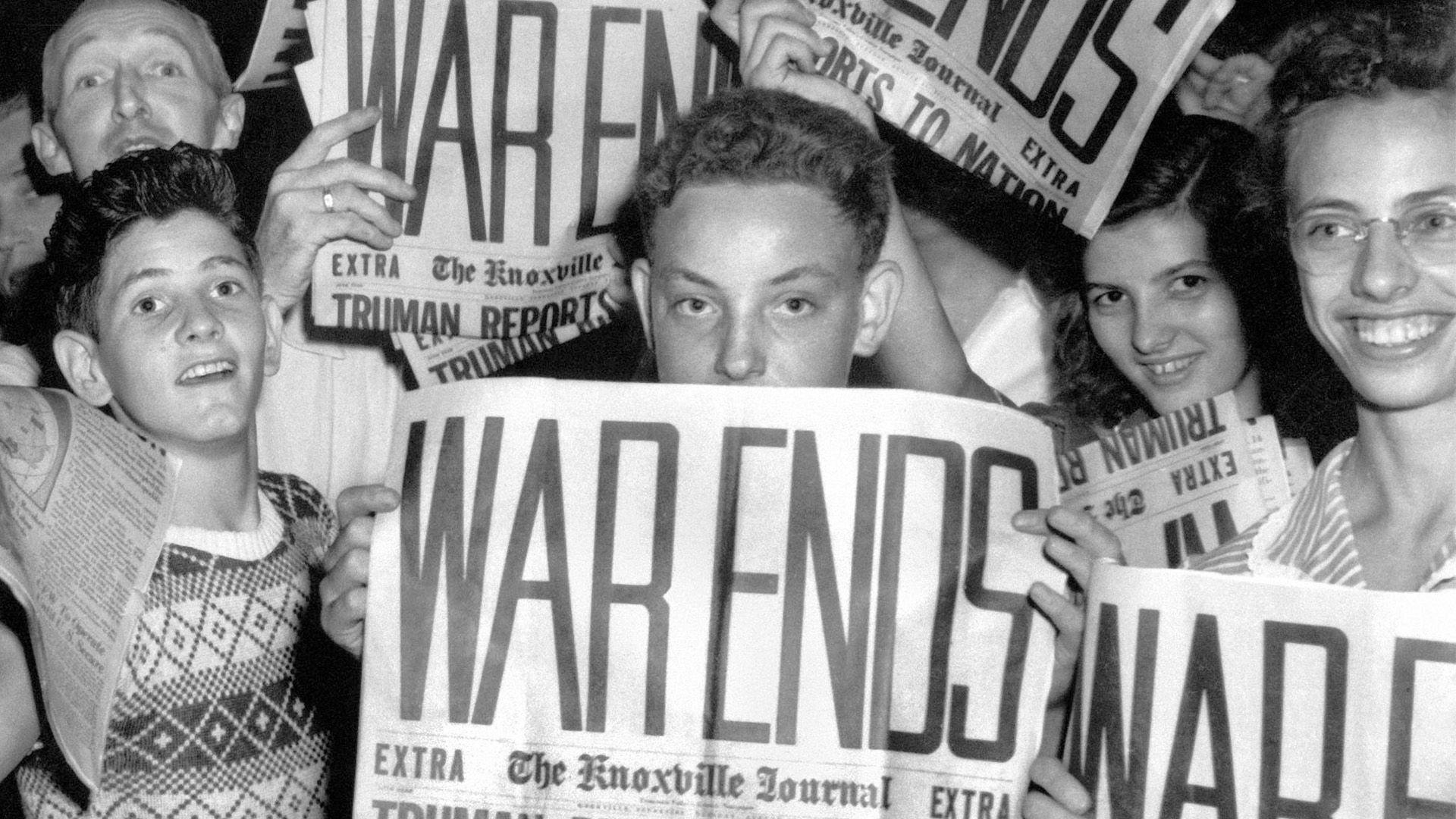Burma Star veteran recalls VJ Day 'godsend'
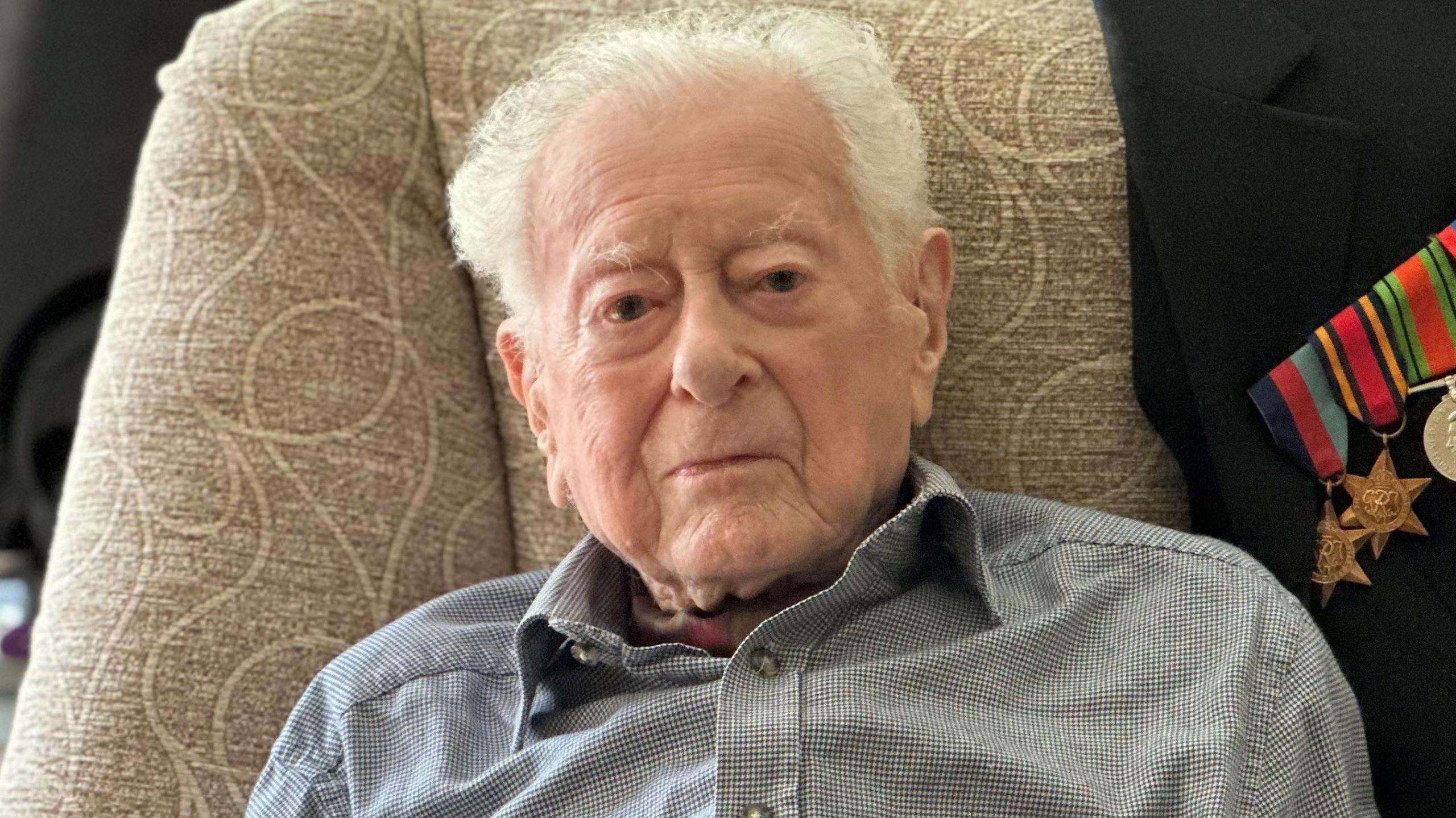
James Fenton fought with the Royal Artillery in Burma
- Published
Veteran James Fenton was in India preparing for an attack on the Japanese mainland when Japan surrendered to the Allied forces on 15 August 1945, ending World War Two.
The 103-year-old described the surrender as a "godsend" for his unit, who were fighting in East Asia.
The last surviving Burma Star recipient living on the Isle of Man, Mr Fenton will be joining other veterans at a service at the UK's National Memorial Arboretum to mark the 80th anniversary of Victory over Japan (VJ) Day.
The Burma Campaign was a series of battles fought between December 1941 and September 1945, concluding after Japan's surrender.
Mr Fenton, who was born in Lancashire, said it was only then that he thought he "might have survived the war".
Mr Fenton grew up in Oswaldtwistle before being drafted into the Lancashire Fusiliers in July 1942, joining the Royal Artillery after his basic training was complete.
In February the following year, the 178th Field Regiment he was part of was sent overseas.
Recalling the journey onboard the Britannic, a leisure ship seconded to the military as part of the war effort, he said: "We didn't know where we were going.
"They had given us tropical kit but, of course, it's all very secretive and nobody wants to say where you're going to give anything away to the enemy."
Arriving six weeks later in Cape Town, South Africa, the regiment transferred to another ship for the journey to Bombay in India, now known as Mumbai.
"When we got there, of course, we knew it was fairly obvious where we were going - we were going to be fighting the Japanese in Burma."
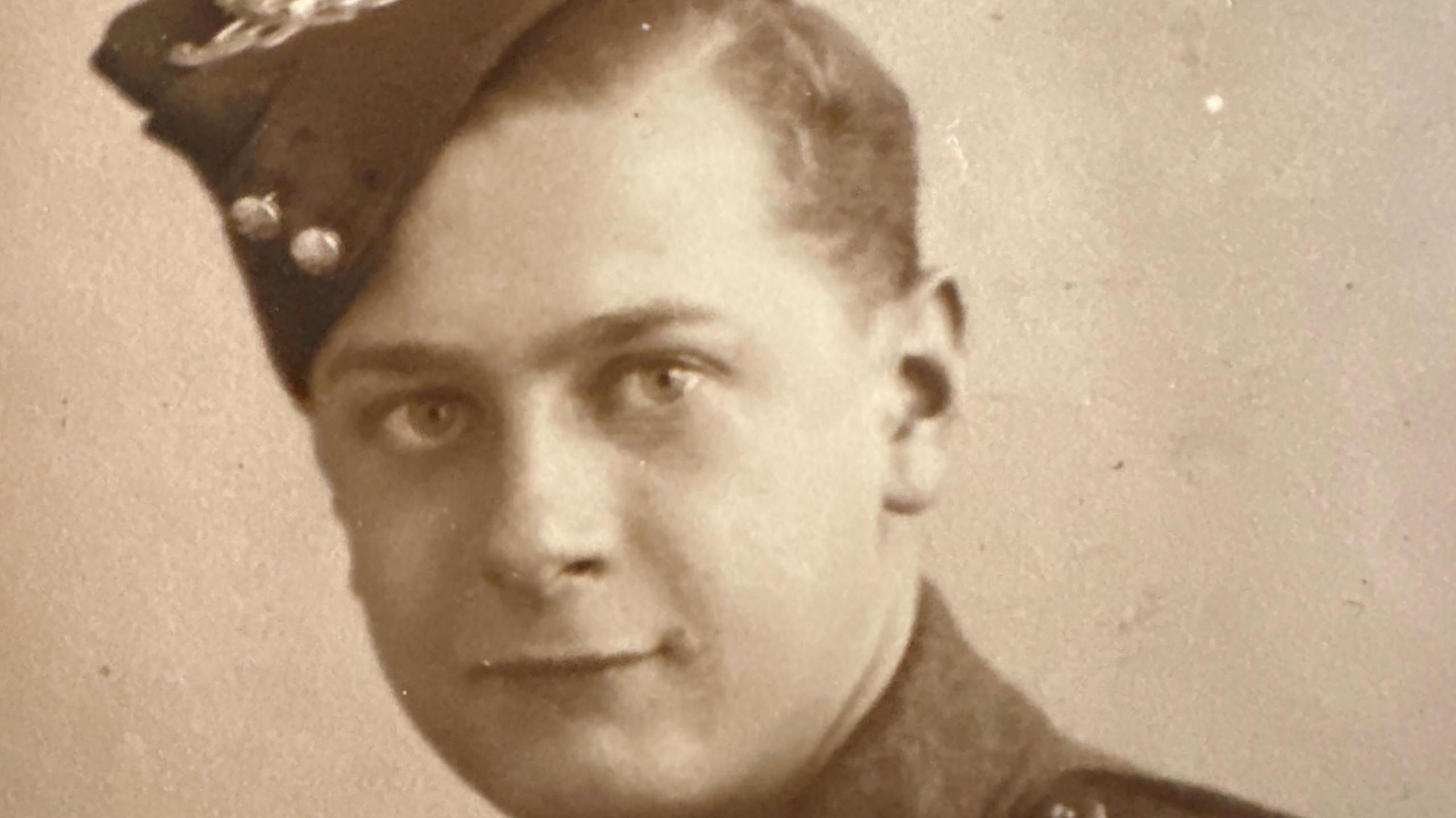
Mr Fenton was drafted into the Army in 1942 when he was 20 years old
Mr Fenton said combat in the jungle posed several practical challenges when advancing towards enemy forces.
"The difficulty is, when you're moving forward, you had to move somewhere where you could fire the guns," he said.
"In the middle of the jungle you couldn't just put them anywhere, you had to fire so that the guns weren't obstructed by the jungle or the trees."
He recalled men sleeping in pairs in trenches, dug into the ground in a circle to protect the gun position, as the "nights were pretty calm".
He said although the Japanese forces "didn't very often attack at night", they did "frequently shell us to keep us awake".
"We didn't very often fire back during the night it was just a straight occasion, it was the Japanese firing us."
Remembering the news filtering through of the Allied forces' victory in Europe in May 1945, he said: "Everybody was having street parties and we were there in the middle of a jungle firing guns, and Japanese firing at us, and this was still carrying on."
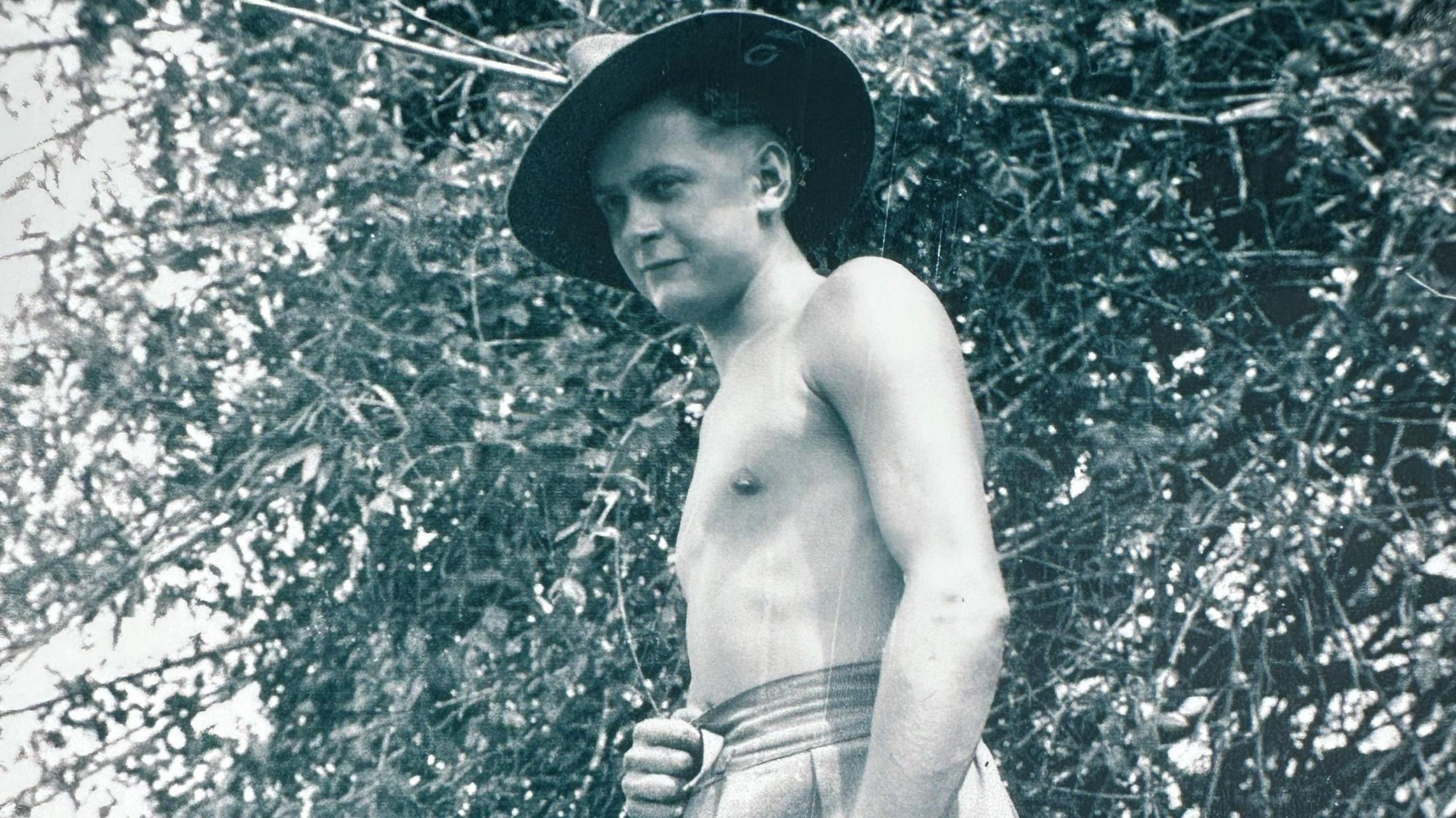
James Fenton spend most of his time in the military based in the East Asia
As the Allied Forces drove the Japanese forces out of Burma in 1945, Mr Fenton's unit was moved to prepare for another offensive.
"Because my unit was an assault unit they then took us back into India and we were retraining again to make an attack on the Japanese mainland," he said.
"And that would have been a terrific problem and horrible for us."
He said when news of the Japanese surrender came through he and his comrades were "more than relieved".
That surrender was announced by Emperor Hirohito on 15 August 1945, following the United States' destruction of the Japanese cities of Hiroshima and Nagasaki.
"We realised if they hadn't dropped that atomic bomb at that time, if perhaps they had delayed that for three months, maybe four months, we were in a position then to make a landing on the Japanese mainland," he said.
"And that eventually would mean the slaughter of so many of the British and European and native soldiers that were making this attack.
"So that fortunately was really a godsend as far as I was concerned because I knew then that I might have survived the war."
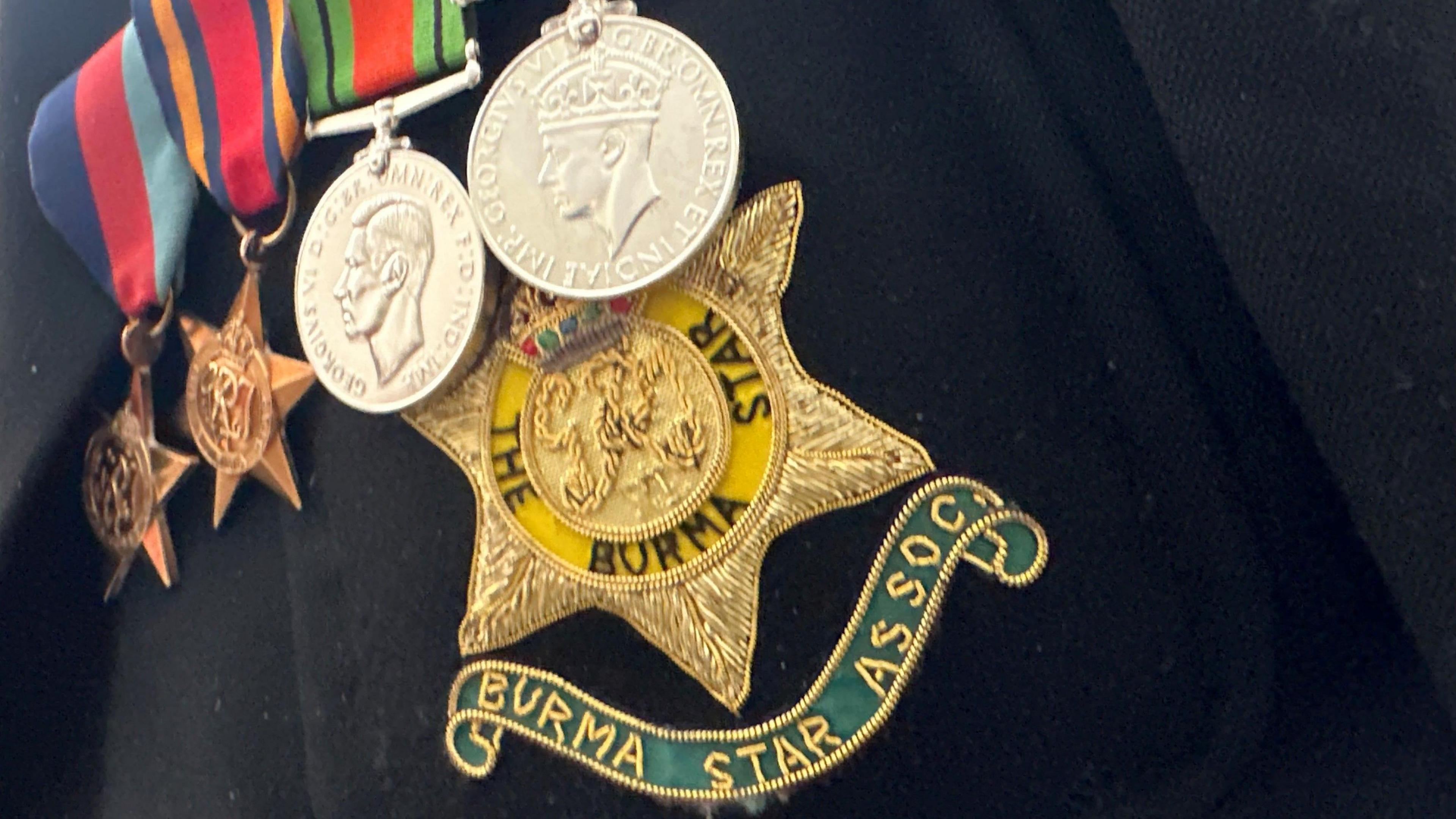
Mr Fenton is the last surviving Burma Star veteran living on the Isle of Man
But VJ Day did not mark the end of Mr Fenton's service in East Asia, as his unit went into Singapore as occupation troops.
"After this my time came along to get back home to England and I had then to wait for a ship to sail me back from Singapore back to Britain," he said.
"Getting back to England was a great sensation, we were going back sailing up through the channel, and disembarking at Liverpool we got a great welcome."
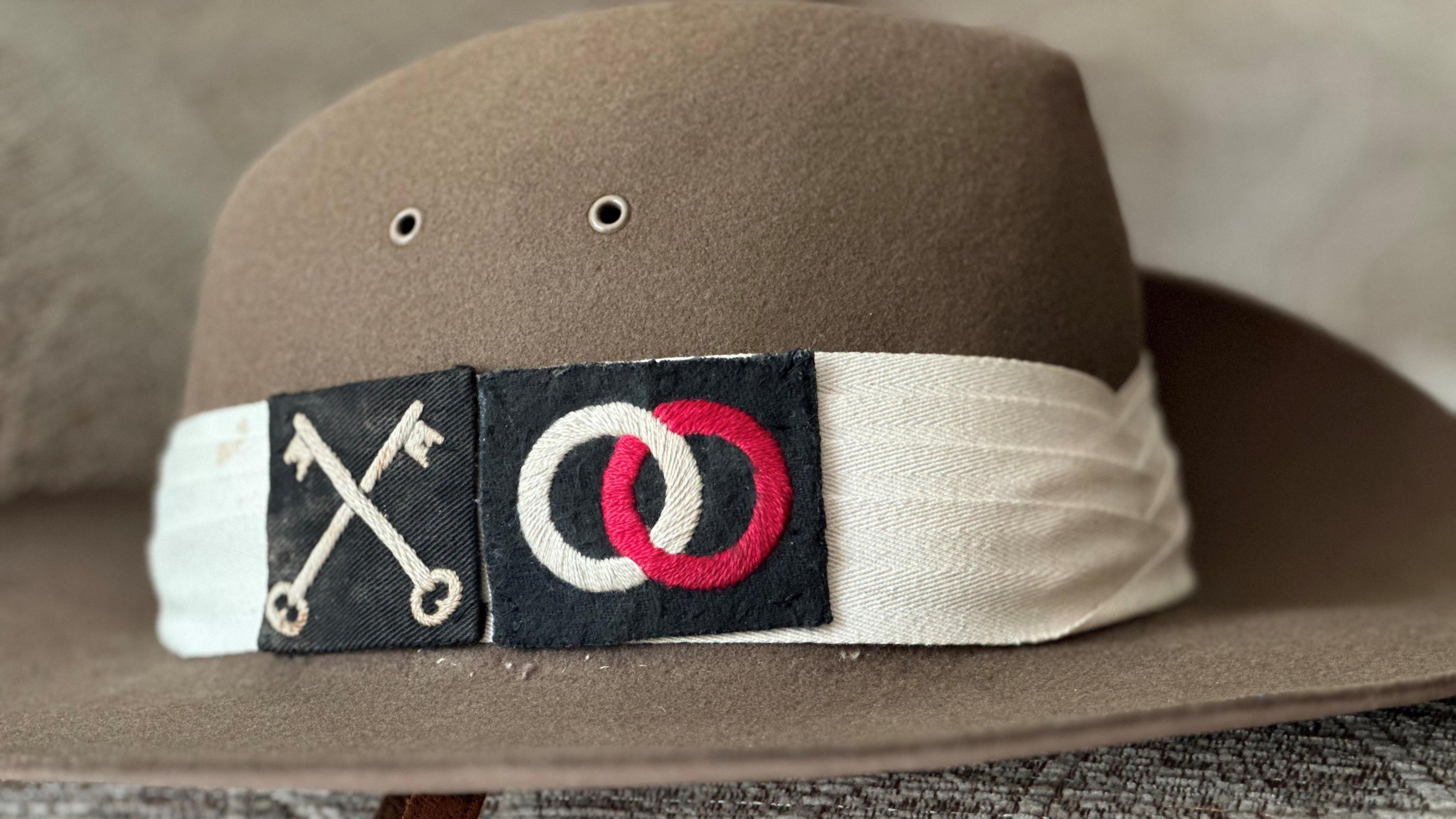
The unit's hats bore the emblems of the division they were serving with
Mr Fenton said he had only shared his memories later in life as ex-servicemen "never ever used to talk about the war" in its aftermath.
He said he and his brother, Harry Fenton, who took part in the D-Day landings, had fought in the same war in different parts of the world but never discussed their experiences.
"I don't know what beach, or even where he landed," he said.
On being invited to attend the Royal British Legion's national service to mark the 80th anniversary of VJ Day, Mr Fenton was keen to accept.
"I heard that there were going to be people asked to celebrate, if you don't mind - celebrate - this occasion because it was going to be the last one," he said.
"I thought, I can't say I'm a fit man and there are many things wrong with me, but I thought well if I can still manage to get there, I'm going.
"So there I am, I'm going."
The BBC will broadcast a special programme live on BBC One and iPlayer, on Friday 15 of August between 11:30am - 1:00pm from the National Memorial Arboretum in Staffordshire.
Get in touch
Tell us which stories we should cover on the Isle of Man
Read more stories from the Isle of Man on the BBC, watch BBC North West Tonight on BBC iPlayer and follow BBC Isle of Man on Facebook, external and X, external.
Related topics
- Published10 August
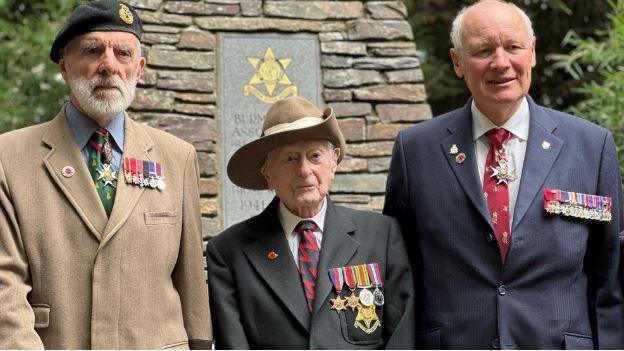
- Published14 August
